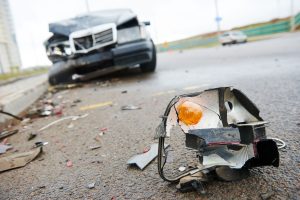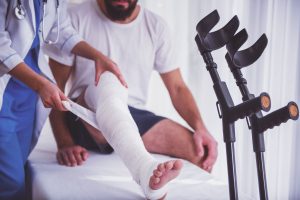 Golf cart owners in Florida, listen up! You could be held legally responsible if someone is hurt in a golf cart accident involving your golf cart, even if you weren’t the one operating it. As a Fort Myers injury lawyer can explain, you have a duty as the owner of that golf cart to avoid handing over the keys to someone who is careless. That could include someone you know if they drive recklessly, has a history of drunk driving or a teenager without much driving experience; this same law applies even if the person who you loan the cart to has a good driving record and has no history of driving issues. This is especially true if the golf cart is going to be operated on a public road with cars.
Golf cart owners in Florida, listen up! You could be held legally responsible if someone is hurt in a golf cart accident involving your golf cart, even if you weren’t the one operating it. As a Fort Myers injury lawyer can explain, you have a duty as the owner of that golf cart to avoid handing over the keys to someone who is careless. That could include someone you know if they drive recklessly, has a history of drunk driving or a teenager without much driving experience; this same law applies even if the person who you loan the cart to has a good driving record and has no history of driving issues. This is especially true if the golf cart is going to be operated on a public road with cars.
Golf carts were designated as “dangerous instrumentalities” – the same as motor vehicles – in the 1984 Florida Supreme Court case of Meister v. Fisher. Because a dangerous instrumentality is deemed inherently dangerous, their owners can be found directly and/or vicariously liable when someone is hurt while operating it negligently. It doesn’t matter if the owner wasn’t the operator, so long as the operator had the owner’s permission.
That point was underscored in a recent Florida injury lawsuit that resulted in a multi-million dollar damage award.
The case in question was out of Miami-Dade County, where a 12-year-old boy suffered catastrophic and permanent injuries in a golf cart accident in 2016. A motor vehicle struck a golf cart full of minors at an intersection – but only after the golf cart operator, 16-years-old, blew past a stop sign. The golf cart flipped and the occupants – all under 18 – were ejected. Two were left in critical condition, including the plaintiff in this case.
Golf Cart Owner Ordered to Pay $50 Million for Florida Golf Cart Accident
The owner of the golf cart was the 16-year-old’s step-uncle. A trial court determined the golf cart owner authorized the teen to drive the golf cart around the neighborhood with the golf cart owner’s son and three other friends. One of those was the plaintiff.
After the accident, the boy’s parents sued both the operator of the golf cart and the owner in the case of Gonzalez v. Chiong. (The driver of the car was not negligent in this case, and therefore was not named as a defendant.)
Before trial, the driver of the golf cart/his parents entered into a consent judgement with the injured boy’s parents for $18 million. Attorneys for the golf cart driver asserted his operation of the golf cart was covered under his parents’ auto insurance policy, as it was a “non-owned auto.” The insurance company, of course, pushed back, arguing that the policy didn’t cover golf cart accidents because a golf cart “doesn’t meet the definition of a private passenger auto.” The trial court agreed with the insurer, granting them summary judgment, but that was later reversed by the 11th Judicial Circuit Court, which ruled the golf cart was covered under the auto insurance policy.
Trial proceeded against the owner of the golf cart proceeded, with plaintiffs arguing he owed the young passenger and his parents a duty of care, negligently breached that duty by entrusting the golf cart, and therefore should be liable for his injuries. The trial court sided with plaintiffs, ordering the golf cart owner to pay a total of $46 million in past and future economic and non-economic damages, and another $4 million to his parents for loss of consortium.
It’s important to note that while the court in this case found the golf cart owner directly negligent for entrusting the golf cart to his 16-year-old step-nephew, other courts have applied the dangerous instrumentality doctrine in Florida golf cart accident cases and found the golf cart owners vicariously liable. That means the court wouldn’t even need to find that the owner was negligent in handing over the keys to another. It would be sufficient to show they gave the operator permission, and that operator subsequently acted without care and caused someone else to get hurt. Continue reading
 The gig economy is thriving, and Florida is no exception. Independent contractors, from rideshare drivers to freelance professionals, make up a significant portion of the workforce. According to a 2023 report by the U.S. Bureau of Labor Statistics, approximately 16% of American workers are classified as independent contractors. Here in South Florida, this number is even higher due to the state’s reliance on tourism, construction, and seasonal industries. While independence offers flexibility, it also comes with significant risks — chief among them the lack of protections under Florida’s workers’ compensation laws. If you’re an independent contractor and sustain Florida work injury, such as a construction accident or car accident, navigating the path to fair compensation can be challenging. Here’s what you need to know and how a Cape Coral personal injury lawyer can help.
The gig economy is thriving, and Florida is no exception. Independent contractors, from rideshare drivers to freelance professionals, make up a significant portion of the workforce. According to a 2023 report by the U.S. Bureau of Labor Statistics, approximately 16% of American workers are classified as independent contractors. Here in South Florida, this number is even higher due to the state’s reliance on tourism, construction, and seasonal industries. While independence offers flexibility, it also comes with significant risks — chief among them the lack of protections under Florida’s workers’ compensation laws. If you’re an independent contractor and sustain Florida work injury, such as a construction accident or car accident, navigating the path to fair compensation can be challenging. Here’s what you need to know and how a Cape Coral personal injury lawyer can help.




 Florida Personal Injury Lawyer Blog
Florida Personal Injury Lawyer Blog



 If you’ve been injured in an accident and are considering pursuing a personal injury claim, you might be wondering what happens during a free consultation with a
If you’ve been injured in an accident and are considering pursuing a personal injury claim, you might be wondering what happens during a free consultation with a  When it comes to Naples personal injury claims, acting swiftly can make all the difference between securing rightful compensation and losing your opportunity to file a claim.
When it comes to Naples personal injury claims, acting swiftly can make all the difference between securing rightful compensation and losing your opportunity to file a claim.
 Knowing your worth is important in life. As it turns out, it’s important in personal injury cases too. Accurately estimating the monetary value of a personal injury case is one of the first orders of business for newly-hired
Knowing your worth is important in life. As it turns out, it’s important in personal injury cases too. Accurately estimating the monetary value of a personal injury case is one of the first orders of business for newly-hired 
 When an accident results in a severe, life-altering injury, it may be classified as a “catastrophic injury” under Florida law. Our
When an accident results in a severe, life-altering injury, it may be classified as a “catastrophic injury” under Florida law. Our 
 Hit-and-run accidents are both incredibly problematic and far too pervasive in Florida. On average, the state clocks 103,000 hit-and-run crashes annually, an incident rate that has climbed 40 percent in the last decade, according to the
Hit-and-run accidents are both incredibly problematic and far too pervasive in Florida. On average, the state clocks 103,000 hit-and-run crashes annually, an incident rate that has climbed 40 percent in the last decade, according to the  What happens if you’re injured at your Fort Myers Airbnb rental?
What happens if you’re injured at your Fort Myers Airbnb rental? Golf cart owners in Florida, listen up! You could be held legally responsible if someone is hurt in a golf cart accident involving your golf cart, even if you weren’t the one operating it. As a
Golf cart owners in Florida, listen up! You could be held legally responsible if someone is hurt in a golf cart accident involving your golf cart, even if you weren’t the one operating it. As a  School is back in session in South Florida! We all are hoping for a happy, healthy, productive school year. Of course, it seems inevitable that there will be at least some injuries in schools.
School is back in session in South Florida! We all are hoping for a happy, healthy, productive school year. Of course, it seems inevitable that there will be at least some injuries in schools.
 In Fort Myers personal injury cases, proving proximate is key.
In Fort Myers personal injury cases, proving proximate is key.






